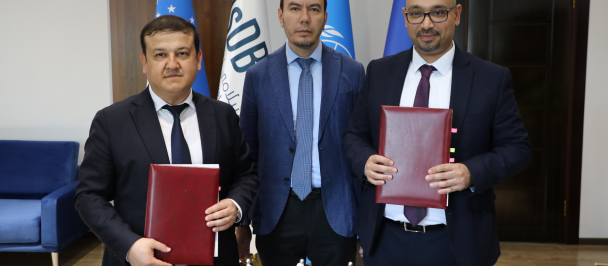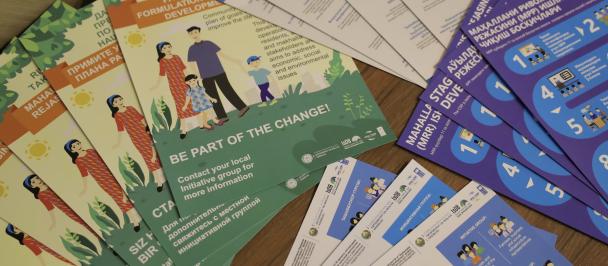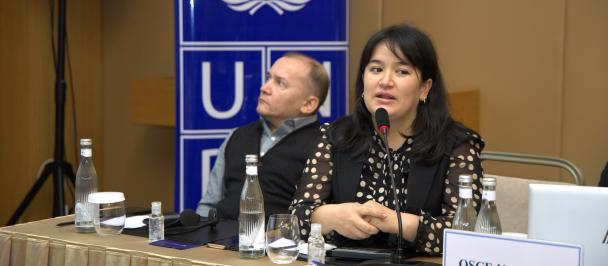Projects aimed to provide water supply to rural residents and create sources of income are presented in Karauzyak, Bozatau, as well as a project to improve the quality of medical services in Khodjeyli district
Residents of two districts of Karakalpakstan received access to drinking water with the support of the Government of Japan
June 14, 2022
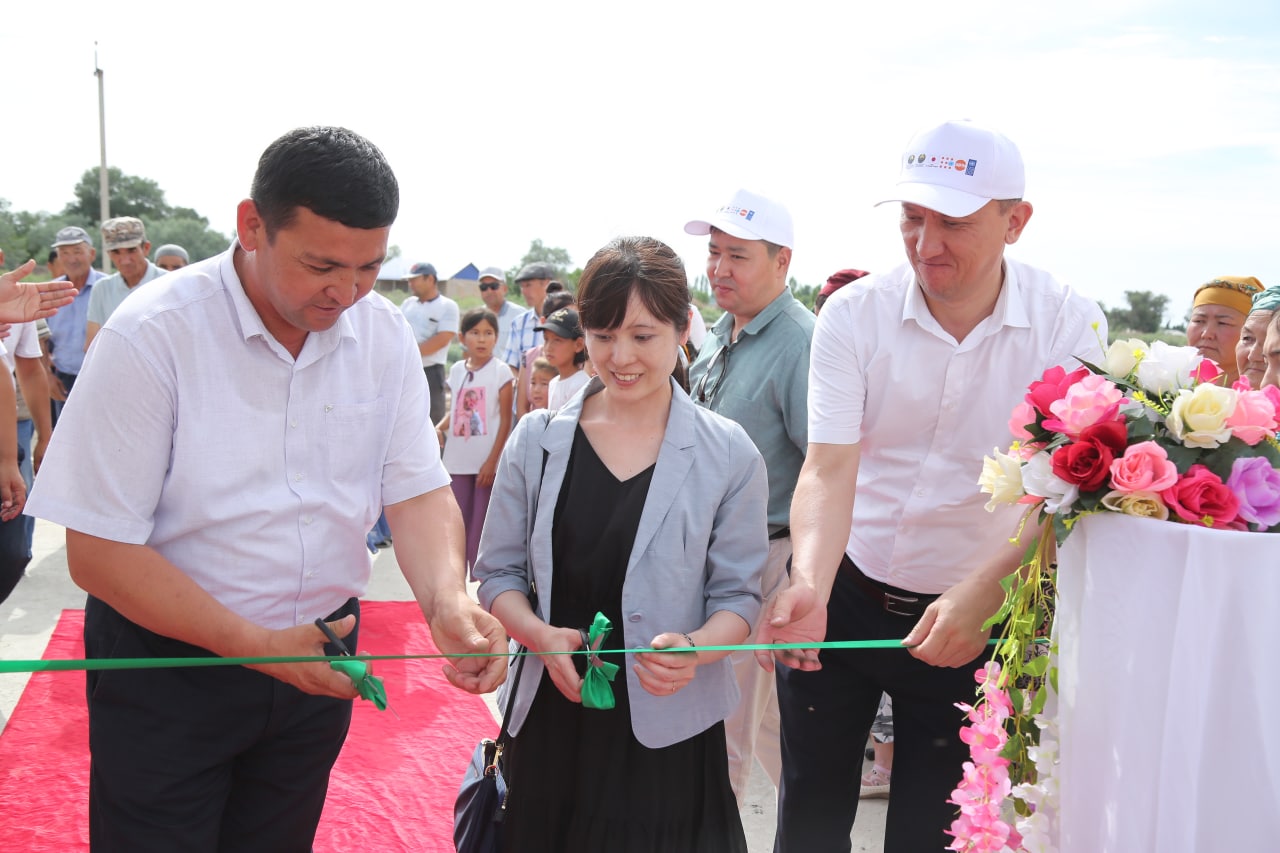
June 13, 2022 Karakalpakstan. Today, grand opening of water treatment plants for rural communities took place in Karauzyak and Bozatau districts of Karakalpakstan. The ceremony was organized as part of the UNDP-UNFPA Joint Programme "Building the Resilience of Local Communities Against Health, Environmental and Economic Insecurities Caused by Environmental Destruction in the Aral Sea region", operating with the financial support of the Government of Japan.
Takita-Sato Tae, First Secretary of the Embassy of Japan in Uzbekistan, arrived in Karakalpakstan to participate in the opening ceremony, as well as to monitor the implementation of the ending Joint Programme.
Today, 1168 people live in the communities "Madeniyat" and "Korymli" of the Karauzyak district. The new 11 km long water supply line made it possible to provide the rural population with drinking water, freeing people from the need to go to neighboring communities for water.
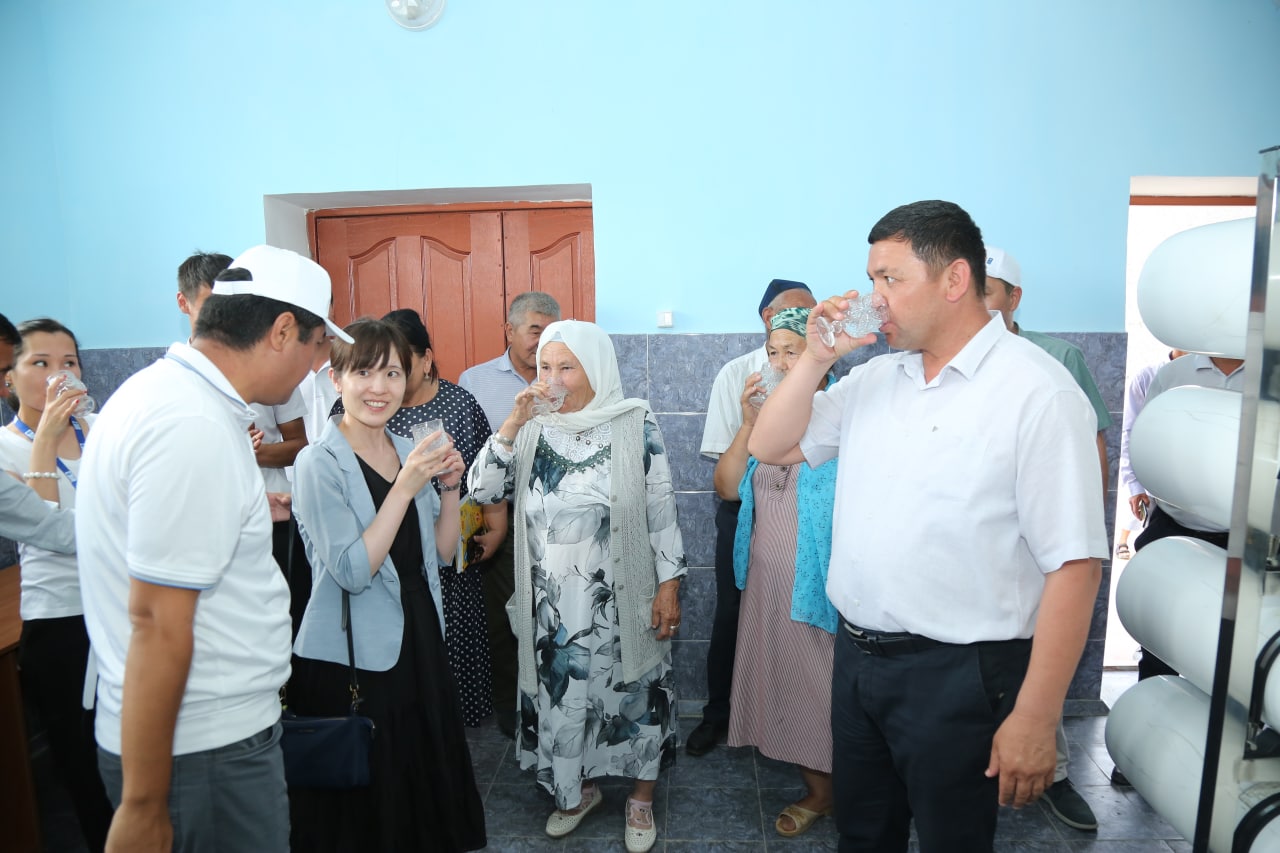
As Alisher Utemisov, Head of the UNDP and UNFPA Joint Programme, financed by the Government of Japan, noted, “During the implementation of the programme, much attention was paid to the development of social infrastructure as a tool for economic growth. Now the inhabitants of these communities have more time and opportunities to engage in education, running their own business, for example, the development of household plots, or entrepreneurship. It will also help expand income-generating opportunities for local communities.”
As part of the monitoring visit, the delegation visited pilot facilities to create sources of income for the local population. For example, Urgenchbai Uteev saw the business opportunities in beekeeping. For the region with a difficult environmental situation, beekeeping is not only a way to get a stable income, but also a contribution to improving the environment, access to an environmentally friendly and healthy product, and an opportunity to diversify the activities of farmers and entrepreneurs in the future. Indeed, in addition to honey, the beekeeper receives wax, propolis and bee venom, which is necessary in the pharmaceutical industry.
In total, within the framework of the programme, 10 beneficiaries from Bozatau, Karauzyak and Chimbay districts received support for beekeeping. Each of them was provided with the necessary equipment and inventory, as well as training sessions on the development of bees and the organization of the honey business.
The next stage on the visit agenda was the Bozatau district, where the Joint Programme supported the business initiatives. Azamat Khalmuratov, 25, decided to launch a milk processing workshop at the ‘Xalmurat Bajban Sharuasi’ Farm . The programme provided him with 12 sets of modern equipment, with the help of which today the entrepreneur produces Buttermilk (Kefir), Cottage cheese (Tvorog) and Sour cream (Kaimak). To maintain the quality of work, Azamat hired nine specialists, creating additional jobs, and cooperates with 18 households and 3 farms. The workshop delivers its products to two local kindergartens and to the market of Takhtakupyr and Chimbay districts.
Other 21,000 residents of the district now have access to fresh vegetables and fruits at an affordable price all year round. And all because Nurlan Zhandullaev, working jointly with farmers, drew attention to the fact that the price of agricultural products in the off-season is heavily inflated. And taking into account the fact that its storage requires special conditions, he began to consider ways to support both local consumers and producers. Today, "Bozatau rauajlandiriu" enterprise has a cold store that can hold up to 100 tons of fruits and vegetables, which are supplied to the entrepreneur by more than 30 local farmers.
Similar projects have been implemented in Chimbay and Karauzyak districts to ensure food security for rural residents and create sources of income for farmers and entrepreneurs.
The foundation of development is education. After all, strength is in knowledge, and it begins from the school bench. The residents of the Erkindarya community in the Bozatau district also align with this idea. There is only one elementary school in the village - a branch of secondary school No. 7. However, the building was in disrepair. During winter, it was impossible to conduct classes - the roof was leaking, the windows let in wind and precipitation, and the heating system did not work. Primary school students had to go several kilometers from their village to receive knowledge. Luckily, the issue was solved with the support of the Joint Programme. The school building for 100 students has been completely renovated. Today children can study there without being distracted by weather conditions in the most comfortable environment.
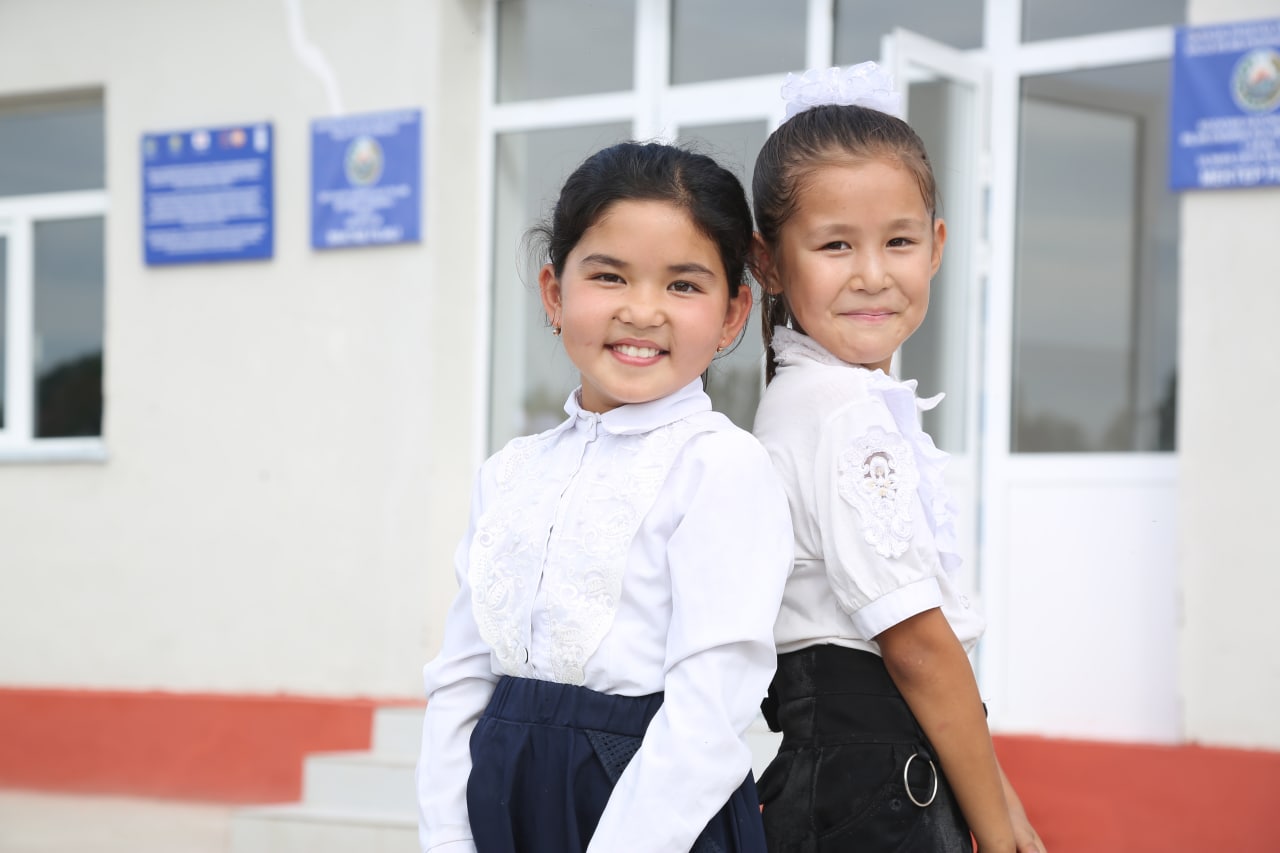
Along with that, another water purification station was officially launched in the Ageden community of the Bozatau district. In general, with the support of the Joint Programme, 3679 people received access to drinking water in Bozatau, Chimbay and Karauzyak districts.
The second day of the mission began with an official meeting at the Council of Ministers of the Republic of Karakalpakstan, where the parties discussed the results of the completion of Joint Programme funded by the Government of Japan and the prospects for further cooperation in the Aral Sea region.
The delegation also visited Muynak for a traditional visit to the ship cemetery, as a symbol of environmental tragedy, and then proceeded to the Khodjeyli district, where a multidisciplinary polyclinic is located. As part of a UNFPA-supported programme, HPV testing is carried out here for early screening of cervical cancer. Through this initiative, more than 500 gynecologists, midwives, oncologists, general practitioners and health visitors have been trained in HPV testing, imaging, counseling and treatment across Karakalpakstan. Eight laboratories are equipped with HPV diagnostic equipment, and 49,140 women were tested, as a result 759 (23%) out of more than 3,000 HPV positives were guided to oncology.
The Joint Programme has been operating since 2020 to address the most pressing health problems and the economic well-being of local communities in the most vulnerable areas of the Aral Sea region through the provision of innovative healthcare solutions and poverty reduction initiatives.

 Locations
Locations
